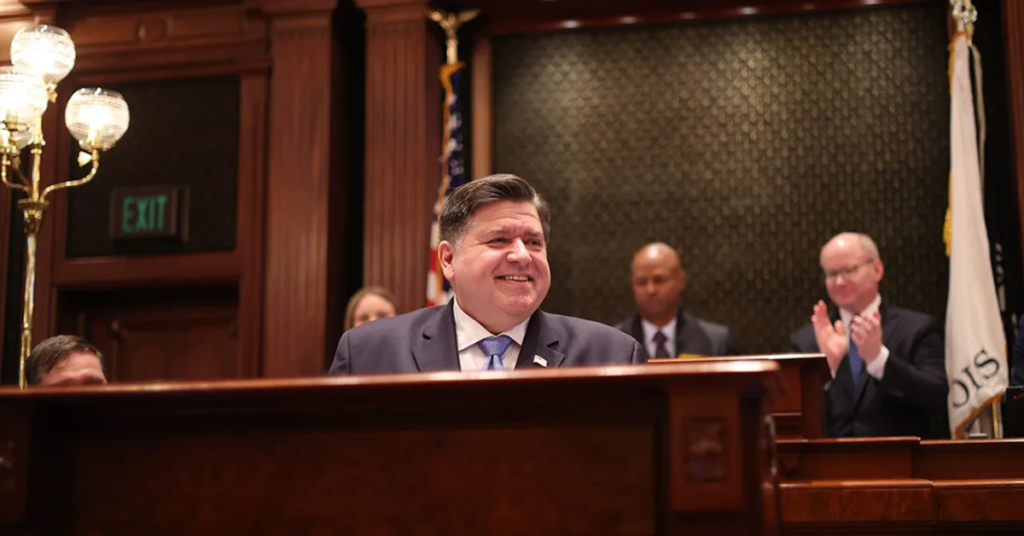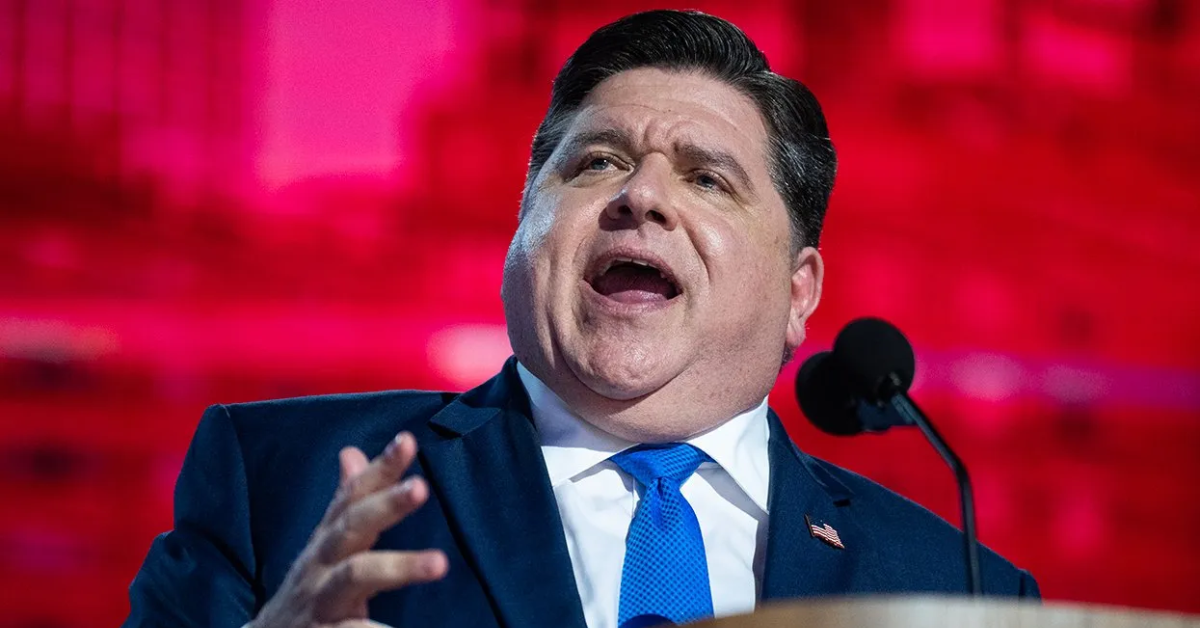Illinois Governor JB Pritzker has raised serious concerns about new tariffs that are on the horizon. In a recent statement, he argued that these measures could hurt local businesses and add extra costs for consumers. His criticism comes at a time when trade policies are under close scrutiny, and many in the state fear that these tariffs could negatively impact Illinois’ economy.
What Are Tariffs and Why They Matter
Tariffs are taxes that governments impose on imported goods. They are meant to protect local industries by making imported products more expensive and encouraging people to buy domestically produced items. However, tariffs can also have unwanted side effects.
Tariffs can raise prices on everyday products, disrupt supply chains, and even spark trade disputes between countries. While they might help some local businesses, they can also hurt the wider economy if not managed carefully.
Governor Pritzker’s concerns are not without reason. He believes that the impending tariffs could put small businesses at risk, especially those that rely on imported raw materials and products. For many local manufacturers and retailers in Illinois, any increase in cost can be passed on to consumers, which may reduce spending and slow economic growth.
Governor Pritzker’s Stand Against the Tariffs
Governor Pritzker has been very clear in his message. He argues that while protecting domestic industries is important, the approach taken with these tariffs is too blunt and could backfire. In his view, the tariffs are likely to raise costs for businesses, which in turn will increase prices for everyday items—from food to electronics. This could lead to a situation where consumers end up paying more for goods, and local businesses struggle to stay competitive.

In a statement released by his office, the governor noted, “These tariffs may seem like a simple solution to protect our industries, but they risk creating a ripple effect that can hurt our local economy. We must look at smarter ways to support our businesses and protect our jobs.” His words resonate with many business owners who have been warning about the potential negative effects of such broad measures.
The Impact on Local Businesses and Consumers
Local businesses in Illinois are feeling the pressure from global market shifts and changing trade policies. Many small and medium enterprises depend on the steady flow of imported goods, whether for manufacturing, retail, or even service industries. An increase in tariffs can mean higher operational costs, which might force some businesses to cut jobs or even close down.
For consumers, the direct impact could be a rise in the prices of everyday items. When businesses face higher costs for imported materials, they often pass these costs on to shoppers. This means that things like groceries, clothing, and electronic gadgets could become more expensive. In a state where many families are already watching their budgets closely, such changes can lead to significant financial stress.
Economic experts have pointed out that tariffs can sometimes lead to a “trade war,” where countries impose additional tariffs on each other. Such scenarios often lead to further instability in global markets and can hurt the economy on both sides. Governor Pritzker’s criticism highlights a growing concern among state leaders that the intended protective measures might end up causing more harm than good.
Political and Economic Reactions
Governor Pritzker’s outspoken stance has drawn mixed reactions from various quarters. Supporters of his view argue that his warnings are a much-needed reality check. They believe that while tariffs can protect certain industries, they must be carefully designed and targeted so as not to hurt the broader economy. Business leaders and economists have joined in expressing their worries, stating that the tariffs could slow down the economic momentum that Illinois has built over the years.
On the other hand, some supporters of the tariffs claim that these measures are necessary to ensure fair trade practices. They argue that if other countries are benefiting from lower production costs due to cheap labour or government subsidies, then tariffs are a way to level the playing field. However, even many of these supporters agree that the timing and scale of the tariffs need to be reconsidered to avoid collateral damage to the local economy.
The debate is heating up as stakeholders from all sides call for more thorough studies and consultations before any final decision is made. Many local officials, business leaders, and consumer groups are urging the state and federal governments to explore alternative solutions that could help protect domestic industries without harming consumers.
Looking Ahead: What Could Happen Next?
As the discussion around tariffs continues, Illinois is likely to see more debates at both the state and federal levels. Governor Pritzker and other state leaders are expected to work closely with economic experts and local business groups to explore ways to mitigate any negative impacts if the tariffs are implemented. Some potential solutions include targeted relief for affected industries, subsidies for small businesses, or even a phased approach to implementing tariff increases gradually.
The governor’s criticism may also prompt a broader conversation about trade policies in the United States. Many argue that a more nuanced approach is needed—one that supports local industries without imposing heavy-handed measures that might hurt consumers. The coming weeks and months will be critical in shaping how these policies evolve and whether adjustments will be made based on feedback from states like Illinois.
For now, Governor Pritzker’s stance serves as a strong reminder that policies affecting trade and commerce are not one-size-fits-all. The real-world impact on local communities, small businesses, and everyday consumers must be taken into account.
His call for a careful review and adjustment of the proposed tariffs reflects a broader desire to protect the state’s economic health while still finding ways to support domestic production and fair trade practices.
Community and Business Voices
Across Illinois, business owners and community leaders have started to voice their opinions. Many small business owners have shared their concerns on social media and in local meetings. They worry that sudden increases in costs could lead to layoffs, reduced services, and a slowdown in economic activity. Some local chambers of commerce have even planned to meet with state representatives to discuss possible strategies to counter the negative effects of these tariffs.
In addition to local reactions, several economic experts have weighed in on the issue. They have warned that if tariffs lead to a trade war, the overall economic environment could become even more unstable. This could have long-lasting effects, especially for regions that depend heavily on imported goods. As such, experts emphasize the need for well-thought-out policies based on solid economic data.
Conclusion
Governor JB Pritzker’s criticism of the impending tariffs is a clear signal that not everyone agrees with the current approach to trade protection. While tariffs are designed to shield domestic industries, they can also create unintended consequences that ripple through the economy. In Illinois, the concerns are real—local businesses, workers, and consumers may all feel the impact if these measures are not carefully reconsidered.
The debate over tariffs is far from over. As discussions continue at both the state and federal levels, it remains to be seen how policymakers will balance the need to protect local industries with the equally important need to maintain economic stability and consumer confidence.
For now, Governor Pritzker’s strong opposition serves as a call to action for a more measured and thoughtful approach to trade policy—one that takes into account the diverse needs of a modern and dynamic economy.
Disclaimer: This article has been meticulously fact-checked by our team to ensure accuracy and uphold transparency. We strive to deliver trustworthy and dependable content to our readers.








